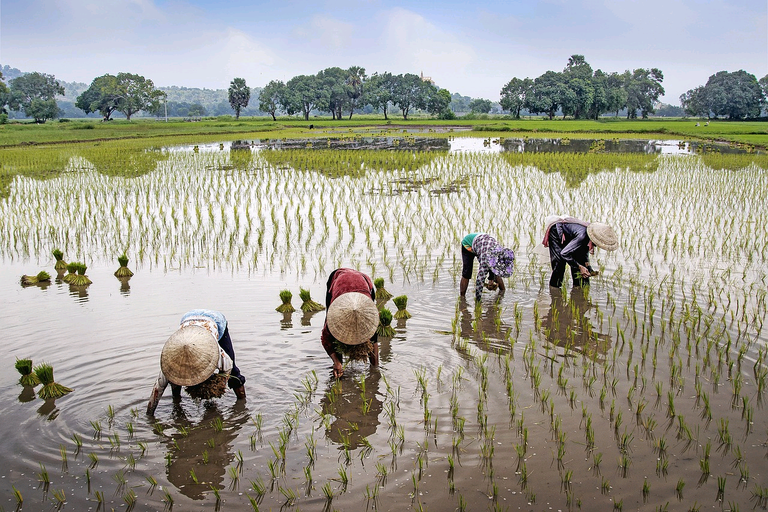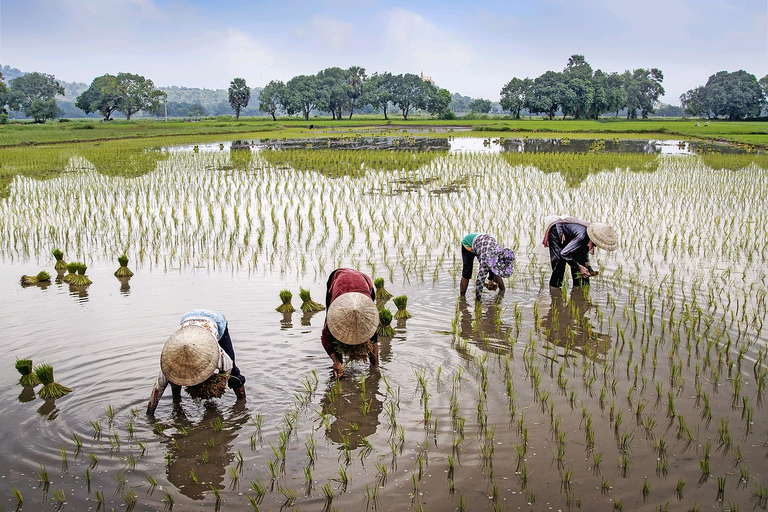Zara lived in the valley of Islel, a place known for its rich soil and traditions. However, those traditions, like stubborn weeds, choked the potential of its women. While men tilted the ground and cultivated the field, the women were expected to be silent, confined to their major roles as women, weaving basket, knitting, and giving birth, those were the areas their strength was measured.
However, Zara wasn't content with the confined roles, she had observed the soil which was gradually losing its strength and knew how to help but no one dared listen to her. She had noticed what the men missed, but her voice seemed too delicate for the weighty matters of the village. One year later, a blight descended on Islel, their crops withered, their yield was lean, their livestock sickened, and their trees started to show signs of dying, fear gripped the land. The men in their ego blamed the land, some, the gods, others their solutions. Zara watched the people starve and die in hunger and she knew she had to do something.

She sought the help of older women, whose voice had been silent despite their vast knowledge of the fields. Maria, an aged woman, was ready to render her assistance and showed Zara what she needed to do to restore the land back to its rich nature. Zara ventured in the field, her hands tracing the parched earth, and showed the men how to amend the land using ashes and crushed minerals, crop rotations and the importance of leguminous plants, and how to create local pesticides from herbs. At first they scoffed, but as a shoot began to emerge from the barren land, they listened.
After a few weeks, the land was field with greens, healing the spirit of Islel. She taught them the need to make observations from the nature of plants. The harvest that year was more bountiful than anyone could remember. The men humbled and grateful now saw women with greater value, and not confined to their duties as mothers and wives. Zara's teaching didn't end there, she went about teaching young girls to see themselves with more value than their confined roles but of women with wisdom to contribute to the community.
Islel transformed, it became a place where women and men worked together and their land flourished.
TRADUCTION ESPAGNOLE
Zara vivía en el valle de Islel, un lugar conocido por su rica tierra y sus tradiciones. Sin embargo, estas tradiciones, como la maleza persistente, sofocaban el potencial de sus mujeres. Mientras los hombres cultivaban la tierra, se esperaba que las mujeres permanecieran en silencio, confinadas a sus roles principales como mujeres: tejer cestas, tejer y dar a luz; esas eran las áreas donde se medía su fuerza.
Sin embargo, Zara no se conformaba con esos roles limitados; había observado cómo la tierra perdía gradualmente su fuerza y sabía cómo ayudar, pero nadie se atrevía a escucharla. Había notado lo que los hombres pasaban por alto, pero su voz parecía demasiado delicada para los asuntos importantes de la aldea. Un año después, una plaga azotó Islel; sus cosechas se marchitaron, su producción fue escasa, su ganado enfermó y sus árboles comenzaron a mostrar signos de muerte; el miedo se apoderó de la tierra. Los hombres, en su ego, culparon a la tierra; algunos, a los dioses; otros, a sus soluciones. Zara vio a la gente morir de hambre y supo que tenía que hacer algo.

Buscó la ayuda de mujeres mayores, cuya voz había permanecido silenciada a pesar de su vasto conocimiento de los campos. María, una mujer mayor, estaba dispuesta a brindarle su ayuda y le mostró a Zara lo que debía hacer para devolverle a la tierra su rica naturaleza. Zara se aventuró en el campo, recorriendo con las manos la tierra reseca, y mostró a los hombres cómo enmendar la tierra usando cenizas y minerales triturados, la rotación de cultivos y la importancia de las leguminosas, y cómo crear pesticidas locales a partir de hierbas. Al principio se burlaron, pero cuando un brote comenzó a brotar de la tierra árida, escucharon.
Después de unas semanas, la tierra se convirtió en un campo de verduras, sanando el espíritu de Islel. Les enseñó la necesidad de observar la naturaleza de las plantas. La cosecha de ese año fue más abundante de lo que nadie podía recordar. Los hombres, humildes y agradecidos, ahora veían a las mujeres con mayor valor, y no confinadas a sus deberes como madres y esposas. La enseñanza de Zara no terminó ahí, sino que se dedicó a enseñar a las jóvenes a ver Se consideraban mujeres con un valor mayor que el de sus roles limitados, pero con sabiduría para aportar a la comunidad.
Islel se transformó y se convirtió en un lugar donde mujeres y hombres trabajaban juntos y su tierra florecía.
@dwixer Saludos, extraorfinario tu historia, muy linda,,un fuerte abrazo
Merci pour votre retour
Esta publicación ha recibido el voto de Literatos, la comunidad de literatura en español en Hive y ha sido compartido en el blog de nuestra cuenta.
¿Quieres contribuir a engrandecer este proyecto? ¡Haz clic aquí y entérate cómo!
@tipu curate 3
Upvoted 👌 (Mana: 41/71) Liquid rewards.
Saludos y felíz dia🌱🍃Me encantó tu historia amigo @dwixer. La sabiduria de la mujer en las artes del cultivo y la tierra. Excelente mensaje: reconocer que los dones de las mujeres son muchos pero su conexión con la naturaleza existe para el bién.
De nada. Espero que la historia haya transmitido el mensaje claramente.